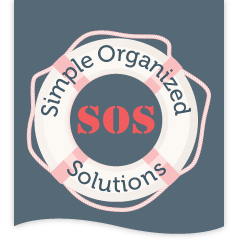 Have you ever asked the question, why can’t I get things done? I’m sure many people have wondered about that at some point in their lives, I know I have. We are living in a fast-paced world and have so much to do all the time that it’s challenging to keep up with everything.
Have you ever asked the question, why can’t I get things done? I’m sure many people have wondered about that at some point in their lives, I know I have. We are living in a fast-paced world and have so much to do all the time that it’s challenging to keep up with everything.
That’s not to say that it’s impossible. Keeping your sanity as you get things done is another very important issue. At the end of the day, you want to feel like you’ve been productive, but if you’re so worn out, both physically and mentally, chances are you won’t have the stamina to continue the next day.
Since we are all different, strategies that help you may not work for others. Understanding what makes you tick will help you determine which strategies to put in your arsenal for optimal productivity. These strategies will also help to keep your sanity in check along the way.
Read on for a list of root causes that may be why you can’t get things done. Strategies and tips are included in each root cause to help you overcome these challenges to live a more productive, less stressful life.
Procrastination
When we procrastinate, it’s typically because we don’t want to perform a task. It could be for many reasons but what it comes down to is our feelings about said task. It may not be fun, or maybe we don’t really know how to tackle it.
Whatever the real reason, we need to understand our feelings around this task as mentioned by Timothy Pychyl, a professor who studies procrastination at Carleton University in Ottawa, in this article. He also provides 3 tips to tackle procrastination, that will help in your quest to get things done.
Distractions
Distractions, or losing focus can prevent you from getting things done. Internal and external objects can cause us to lose focus. The ‘objects’ that cause us to lose focus, or become distracted, can be internal or external.
Internally, our bodies may be alerting us in some way either physically, or mentally. Maybe you’re hungry and your stomach is growling. We may have something else on our minds that require a solution that we have not yet determined.
External distractions can be from an electronic source such as your phone alerting you to a call, text or an email. Environmental factors can cause lack of attention, or focus. You may be too cold or hot. A co-worker, child, or pet may be demanding attention.
Here are some tips to avoid distractions: regularly practicing mindfulness meditation to improve focus, turn off alerts on electronic devices, determine your peak performance time of day and schedule difficult tasks at that time, block out time on your schedule to work on specific tasks, keep your work area decluttered and organized.
Perfectionism
First, acknowledge that you have a perfectionist mindset. Are you a person that needs to have everything you do done to perfection? Are your standards so high that you can’t get things done? If so, you might be a perfectionist. Once you acknowledge this behavior, you can change it.
Think about why you want everything you do to be perfect. Are you afraid of failure or criticism? That may be a reason why you don’t turn in work on time. Work on your mindset to adopt a ‘good enough’ attitude. Maybe your standards are too high, consider stepping them down a bit.
Another tool to help you overcome perfectionism is the deadline. Most tasks in a project, even the project itself has a deadline. Challenge yourself to complete the work well in advance of the due date. That’s when the ‘good enough’ mindset will come in handy.
Schedule overload
An overloaded schedule may be why you can’t get things done. It also causes overwhelm which leads to stress. Some changes to your schedule are necessary to avoid potential overwhelm and decrease your stress level.
Delegate tasks that require a skillset that you don’t possess, or that you don’t particularly like to do. It’s also ok to defer a non-urgent task for another time. Creating gaps in your schedule is a good way to avoid overwhelm. It allows you to regroup and breathe before moving on to the next task. Scheduling and taking frequent breaks will increase productivity, although it sounds counter-productive. If your schedule is overloaded with frequent breaks, that’s actually a good thing!


